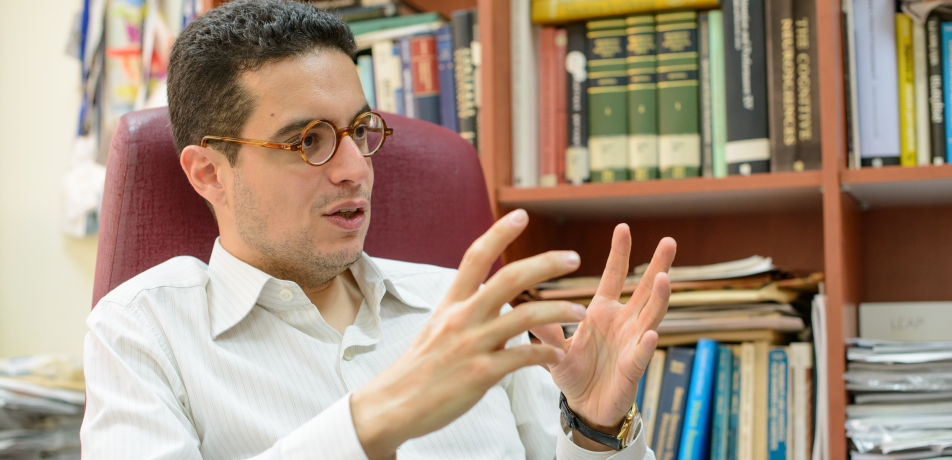Prof. Rava Azeredo da Silveira
On perception - and some perceptions of Israeli science
People behind the science

Even in a globalizing world, it is not every day that you encounter a global citizen and scholar like Prof. Rava Azeredo da Silveira.
Born and raised in Switzerland to a Brazilian father and an Iranian mother, he obtained his PhD in theoretical physics at MIT and worked as a junior fellow at Harvard University. Yet he continues to travel and work as a visiting scientist in various places, including Princeton University and the Weizmann Institute of Science, while maintaining a working lab in the École Normale Supérieure (ENS) in Paris.
But Prof. da Silveira is not only a geographical wanderer; he also enjoys “traveling” from one discipline to the next. Although he started as a theoretical physicist, he currently works in the field of computational neuroscience, which he is very passionate about. His research encompasses the three different levels of analysis typically addressed in neuroscience: the molecular or single cell level, the network level, and the behavioral level of a whole organism. Unlike scientists who follow a certain path of inquiry throughout their career, Prof. da Silveira claims that he is “impressionistic” in that he has been “motivated by diverse and broad conceptual themes rather than by trying to find ways to apply old tools to new questions,” he says.
Prof. da Silveira served as a visiting scientist with the research group of Prof. Michail Tsodyks of the Department of Neurobiology for a little over two months, and also spent four weeks at the Hebrew University of Jerusalem, earlier this year. “I enjoyed every minute of my time in Israel… I love the streets of Israel and I love Weizmann,” he says, adding that in particular he is attracted to “the people and the authenticity of their interactions.” As a Baha’i, he had visited Israel in the past to see the Baha’i holy sites and has returned for professional visits twice since, including his latest stay.
Neuronal basis of perception and expectation
Part of his current research focuses on neuronal network mechanisms involved in sensory perception, both in the retina and the brain. He explores how these networks acquire their specific function and characteristics. He also studies how the brain is able to precisely represent information and “make sense” of the activity of complex networks of neurons that compose it.
His most recent research, however, developed largely during his time in Israel, deals with how the brain develops behavioral expectations based on sensory input. People receive only limited information through the senses, yet they construct and maintain a model of the world in the mind, which allows them to make predictions on what to expect from the world and from their actions. He is elucidating this inference process through which the brain builds this expectation model and generates predictions. His work with Prof. Tsodyks will continue from afar. For now, their work is purely theoretical, but it may lead to behavioral experiments with the aim of testing their hypothesis on human subjects.
One of the things that made Weizmann appealing to Prof. da Silveira is the unique campus atmosphere. The high level of scientific research combined with the small scale of the facility makes Weizmann fertile ground for innovative and cross-disciplinary ideas, and the informal yet well-managed environment allows for positive interaction and stimulating debate at all levels. This is especially true for students, who “are invested in and care about science and enjoy greater freedom to criticize and debate ideas” than they would in perhaps any other place in the world.

Neurons showing electronic pulses transferring information in the brain